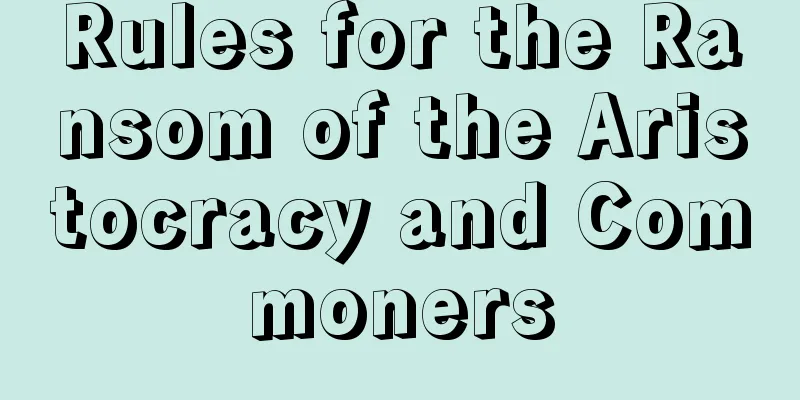Class struggle - English

|
It is a struggle that takes place when a society is divided into several classes that are in irreconcilable hostility with each other, and one of the classes tries to overthrow the other class, seize its political, economic, and cultural privileges, rights, and opportunities, and gain control. Class conflict and strife have been attracting attention since ancient times, and various theories have been produced. Plato tried to overcome the struggle between the rich and the poor through the rule of philosophers, and later, in early 19th century France, Saint-Simon saw the French Revolution as a struggle between three classes - progressive intellectuals, conservative property owners, and the proletariat - and advocated social reform centered on industrialists, but he did not go so far as to theorize class conflict. It was Marx and Engels who, from the standpoint of the materialist view of history, preached the inevitability of class conflict and struggle and the historical mission of the proletariat, and presented the theory of class struggle. According to them, except for the stage of primitive communism, the history of all society up to the present day is the history of class struggle, and class conflict and strife in capitalist society originates from the exploitation of workers (expropriation of surplus value) by capitalists. In other words, the significant inequality in the distribution of wealth (the difference between rich and poor) is due to the contradiction that production is socialized but ownership is private in nature, but in order to maintain this system of exploitation, capitalists leave this contradiction as it is and force workers into poverty and other unbearable sacrifices, so workers, in an attempt to free themselves from this shackles, begin to promote a movement to break down and reform the social system based on the current production relations. The conditions for such system change exist within the capitalist system itself (contradictions such as the socialization of production and the private nature of ownership), but at the same time, it is said that the working class that will be responsible for system change must escape from their state of isolation, dispersion and competition, concentrate in large industrial areas, awaken to class interests, form organizations, unite under these organizations, and mature independently into a class that stands for itself, Klasse für sich, with true class consciousness and class organization. Class struggle includes economic struggle by labor unions, political struggle under the leadership of political parties aiming at systemic change, and ideological struggle to expose the errors of the hostile class and assert the correctness of one's own position. It is argued that in capitalist society, due to the action of inherent laws, the polarization into the two major classes of labor and capital will intensify in the future, the condition of workers will worsen, and they will continue to become impoverished, so that class struggle will become more and more intense and revolution will be inevitable. However, since the end of the 19th century, particularly in modern developed countries, contrary to the predictions of Marx and others, instead of polarisation and impoverishment, it has brought about the expansion of a new middle class and the improvement and standardisation of living standards, and along with the expansion of welfare policies, it has led to the revisionism of Bernstein and others, the social democratic approach, and the institutionalisation of class conflict.As a result, class struggle in developed countries has changed, lost its revolutionary nature, and tends to be incorporated into the system. [Akira Hamashima] [References] | | |Source: Shogakukan Encyclopedia Nipponica About Encyclopedia Nipponica Information | Legend |
|
社会がいくつかの階級に分裂して互いに和解しがたく敵対している場合に、いずれか一方の階級が他方の階級を打倒して、その政治上、経済上、文化上の特権、権利、機会を奪取し、支配権を手に入れようとして行われる闘争をいう。階級間の対立、抗争については古くから注目され、種々の学説が生み出された。プラトンは富者と貧者の間の闘争を哲人支配によって克服しようとし、下って19世紀初頭のフランスでは、サン・シモンは、フランス革命を進歩的知識層、保守的所有者、無産者という三つの階級間の抗争としてとらえ、産業者を中心とした社会改造を説いたが、階級闘争を理論づけるまでには至らなかった。 唯物史観の立場から階級間の対立・闘争の必然性とプロレタリアートの歴史的使命を説いて、階級闘争の理論を提出したのは、マルクス、エンゲルスである。それによると、原始共産制の段階を除き、今日までのあらゆる社会の歴史は階級闘争の歴史であって、資本主義社会における階級間の対立・抗争は資本家による労働者の搾取(剰余価値の収取)に由来する。つまり、富の分配の著しい不平等(貧富の差)は、生産が社会化されているのに領有が私的な性格をもつという矛盾によるが、資本家はこのような搾取の体制を維持する必要上、こうした矛盾をそのままにして労働者に貧困その他さまざまの耐えがたい犠牲を強いるため、労働者はこの桎梏(しっこく)から自らを解放しようとして、現行の生産関係を土台とする社会体制を打破し、変革していく運動を推し進めるようになる、という。このような体制変革への条件は、資本主義体制自体のなかにあるが(生産の社会化と所有の私的性格などの矛盾)、同時に体制変革を担うべき労働者階級が孤立・分散、競争の状態を脱却して、大工業地帯に集中し、階級的利害に目覚めて組織をつくり、そのもとに団結して、真の階級意識や階級組織を備えた対自的階級Klasse für sichにまで主体的に成熟していなければならない、とされている。 階級闘争には労働組合による経済闘争、政党の指導下で体制変革を目ざす政治闘争、敵対階級の誤りを暴露し、自己の立場の正しさを主張するイデオロギー闘争がある。資本主義社会ではそれに内在する法則の作用によって、将来ますます労資二大階級への両極分解が強まり、労働者の状態は悪化し、窮乏化の一途をたどるから、階級闘争はますます激化し、革命は不可避である、と主張される。 しかし、19世紀末以降、とくに現代の先進諸国では、マルクスらの予想に反して、両極分解と窮乏化のかわりに、新中間層の増大と生活の向上・平準化をもたらし、福祉政策の拡充とともに、ベルンシュタインらの修正主義や社会民主主義の路線、階級対立の制度化などの事態を招き、そのため先進諸国における階級闘争は変質して革命性を失い、体制内部に組み込まれていく傾向がある。 [濱嶋 朗] [参照項目] | | |出典 小学館 日本大百科全書(ニッポニカ)日本大百科全書(ニッポニカ)について 情報 | 凡例 |
<<: Muslim - Kaikyo (English spelling) Hui-jiao
>>: Class consciousness - English
Recommend
Sadler's Wells Ballet
…Britain's leading ballet company. This name ...
Shoho (English spelling) chao fǎ
A monopoly system developed in the Song Dynasty in...
Bydgoszcz (English spelling)
Bromberg is the capital of the Kujawsko-Pomorskie ...
Social Security System Council
This is an advisory body under the jurisdiction o...
"Okame Hachimoku" - "Eight Eyes from the Hill"
...After writing "Koueki Shinwa" in 177...
Daisuke Namba
An anarchist of the Taisho period. The perpetrato...
Rowohlt Verlag
Founded in Leipzig in 1908 by E. Loubold, this Ger...
Takemotoza
A theater for puppet theater. The first Takemoto ...
Drepanaspis
...the internal structure is unknown. The body is...
Lacerta lepida (English spelling) Lacertalepida
…There are about 210 species in 22 genera that ar...
Clinical testing - medical technology
A branch of medicine that deals with various analy...
Layla and Majnun (English spelling)
A tragic love story that is widely loved in Islami...
Inunoshita - dog tongue fish
A marine fish belonging to the order Pleuronectif...
Kru
...The above two groups speak languages belongi...
Regular and irregular perversion
…The same crystal lattice is divided into two pos...









